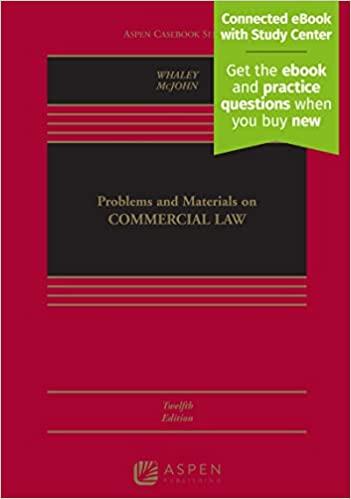Question
Angela was interested in selling some property she owned for $2,500. She was also about to have a new paint job done on her classic
Angela was interested in selling some property she owned for $2,500. She was also about to have a new paint job done on her classic Porsche from Matt. Therefore, she approached Matt and asked him if he would be interested in trading her property for the paint job. Matt agreed. However, to avoid costly tax consequences, the written property conveyance documents listed the purchase price as "$2,500 cash" and said nothing of the bargained-for-exchange.
Matt competently painted Angela's car and thereafter Angela transferred the property to Matt. However, she thereafter sued Matt for the $2,500 purchase price based on the written contract, alleging that Matt never paid her the $2,500 cash as set forth in their written agreement.
3. At trial, would Matt be able to introduce evidence as to the barter agreement, assuming the court finds the agreement partially integrated?
(A) Yes, if a court determined that the barter agreement is the type of term that "might naturally" be omitted from the property conveyance documents.
(B) No, if a court determined that the barter agreement is the type of term that "might naturally" be omitted from the property conveyance documents.
(C)Yes, to avoid Angela's unjust enrichment, regardless of whether a court finds the barter agreement to be a consistent additional term.
(D) No, because it is Matt's duty to ensure all of the terms of the agreement, which favored him, were reduced to writing.
Step by Step Solution
There are 3 Steps involved in it
Step: 1

Get Instant Access to Expert-Tailored Solutions
See step-by-step solutions with expert insights and AI powered tools for academic success
Step: 2

Step: 3

Ace Your Homework with AI
Get the answers you need in no time with our AI-driven, step-by-step assistance
Get Started


